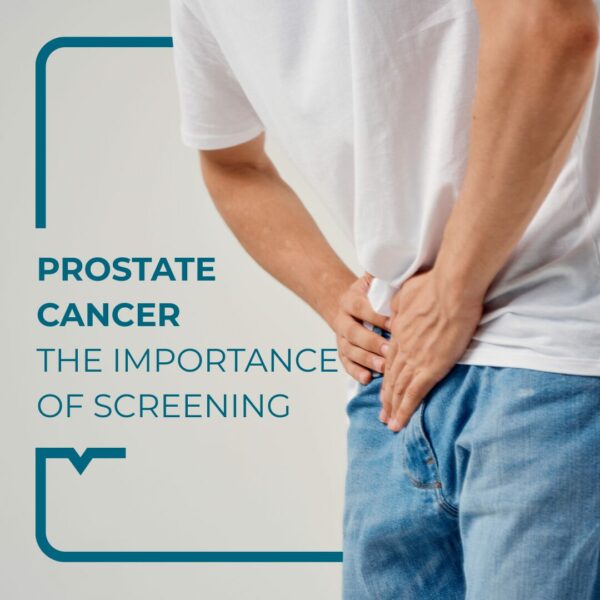Since 2010, the incidence of certain STD and STI (sexually transmitted diseases and infections) has increased exponentially. The resurgence of venereal diseases such as syphilis, gonorrhea, and chlamydia is a public health phenomenon that should not be ignored. STD and STI testing is available at Alegria Medical Centre. Please find more details at the end of this article.
What are STDs?
eSTD and STI , are infectious diseases caused by pathogenic germs transmission during sexual intercourse of any kind between two partners. Some STIs can also be transmitted through blood and breast milk.
There are more than 30 pathogens that can cause an STI. These can be anything from;
– a bacterium like syphilis in humans, gonorrhea, and chlamydia.
– a virus such as human immunodeficiency virus (HIV), hepatitis B virus (HBV), herpes simplex virus (HSV), and human papillomavirus (HPV)
– a parasite like Trichomonas vaginalis, whose presence on the genitourinary mucosa determines urogenital trichomoniasis.
The most frequent STI from bacterial origin
They are curable if diagnosed in time.
- Syphilis is an extremely contagious STI that has been on the rise since the 1990s, particularly in developed countries. This infection is caused by the Treponema pallidum bacterium. It manifests itself as a chancre, can develop and lead to other complications if not treated in time (neurological, cardiovascular, and ocular damage in particular).
- Gonorrhea, also known as gonorrhea or ‘clap’, is an infection with the bacterium Neisseria gonorrhoeae. All types of sexual intercourse, including oral sex can contaminate. They are thought to be the cause of half of all cases of gonorrhea in France.
- Chlamydia is caused by infection with the bacterium Chlamydia trachomatis. It is one of the most common STIs in Western countries. The majority of infected people have no symptoms. They are often unaware that they have this STI, which is why it is considered a “silent disease”.
- Trichomoniasis is a parasitic infection caused by the parasite Trichomonas vaginalis. It is a very common vaginal infection. That manifests itself in some women as increased vaginal secretions, sometimes smelly and yellowish or greenish. However, most men and women affected have no symptoms.
Silent diseases can sometimes lead to irreversible consequences (chlamydia can affect fertility). This is why regular testing are required, especially when risky sex has taken place.
The most frequent STI’s from viral origine
They are difficult or impossible to cure depending on the virus.
- Infection by the hepatitis B virus (HBV), like syphilis, is also making a comeback in Western countries. It should be noted that these resurgences are directly linked to the increase in repeated unprotected, and therefore risky, sexual intercourse in recent decades. The hepatitis B virus can cause life-threatening liver infections, chronic infections, and a significant risk of death from cirrhosis or liver cancer for those exposed. It is now a major public health problem.
- Genital herpes is a viral infection caused by the herpes simplex virus, predominantly type 2 (HSV-2), which manifests itself as vesicular lesions on the genitals. Genital herpes is a highly contagious, sexually transmitted viral disease. After the first infection, the virus settles in the body and “sleep”, only to appear in outbreaks.
- Human immunodeficiency virus (HIV) infection is probably the best known STI. This infection causes Acquired Immunodeficiency Syndrome (AIDS), which is a weakened state of the immune system that makes it vulnerable to multiple opportunistic infections. HIV is a retrovirus (an RNA virus) of the lentivirus family, which causes slowly progressing diseases.
- Finally, Human Papillomavirus (HPV) are very common viruses – there are over 150 types. They infect the skin and mucous membranes and can cause benign or malignant lesions. These viruses usually cause the development of condylomata, external genital lesions and can play an important role in the development of cervical cancer.
STD and STI: How to prevent them?
The development of an STD can be prevented by limiting the risk of infection either through adequate protection during sexual activity (e.g. by using a male or female condom) or through vaccination against certain infectious agents, such as hepatitis B virus (HBV) and human papillomavirus (HPV).
Everyone can be affected by STIs, so every sexual partners have to protect themselves from infection.
In case of doubt, especially after risky sex, it is recommended to get tested for STIs.
Early detection allows rapid medical treatment and limits the risk of contagion. Do not hesitate to discuss this with our practitioners at Alegria Medical Center.
Quick, efficient, and confidential STI testing at Alegria Medical Centre
For a full screening of sexually transmitted infections (STIs), it is recommended to carry out:
- A blood test, which can detect hepatitis B and C, syphilis and HIV.
- A vaginal swab (for women) or a urine sample (for men), which can detect chlamydia, chancroid, oral and genital herpes, mycoplasma genitalium, mycoplasma hominis, gonorrhoea, trichomonas vaginalis and ureaplasmas.
All of these tests can be done at Alegria Medical Centre.
Screening process:
1. Blood test for hepatitis B and C, syphilis, and HIV
- Available between 8:30 am and 12:00 pm at Centro Médico Alegria, with or without an appointment.
- Results are sent directly to the patient by the laboratory.
To interpret the results or receive a prescription, a general medicine consultation (in-person or by teleconsultation) is required.
If the blood test is combined with the urine or vaginal test, the teleconsultation analysis is included in the package.
Price of the blood test: €178
2. Screening via sample collection: chlamydia, chancroid, oral and genital herpes, mycoplasma genitalium, mycoplasma hominis, gonorrhoea, trichomonas vaginalis and ureaplasmas
a. Sample collection
For men (urine sample)
Book by phone, email or directly at the end of this article.
Choose one of the following options:
- Pick up a container at the medical centre, collect the first morning urine at home and deliver it to the centre.
- Go to the centre first thing in the morning for on-site collection and consultation (in this case, an early appointment is preferable).
It is recommended to avoid intimate hygiene before the sample is taken.
For women (vaginal swab)
Book by phone, email or directly at the end of this article.
During the consultation, the doctor will carry out a vaginal swab.
Price of the sample-based screening: €140
b. Analysis and results
The sample will be sent to the laboratory.
Results are sent by email within 8 working days.
c. Result interpretation
- If the result is negative, a notification will be sent by email.
- If the result is positive, the doctor will contact the patient to interpret the results and provide a prescription if necessary.
This information is not a substitute for medical advice.
You must seek the advice of your doctor or other qualified health professional for any questions relating to your health condition.



